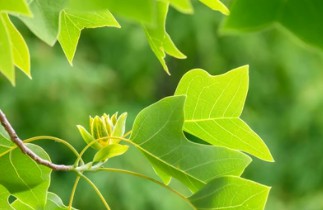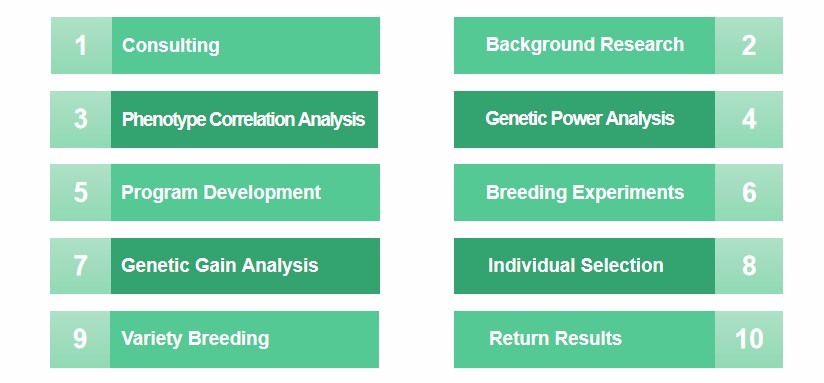
Liriodendron chinense (L. chinense) is an endangered plant of the genus Liriodendron of the Magnoliaceae family, distributed in southern China and northern Vietnam and cultivated in Western Europe, North America, and New Zealand. L. chinense has a straight trunk and a beautiful tree shape and is often used as an ornamental plant. At the same time, its wood is light reddish brown, straight in texture, delicate in structure, light and soft in quality, and easy to process. It is an excellent material for construction, shipbuilding, furniture, and joinery.
L. chinense has been repeatedly deforested and has become sparse in its main range. Liriodendron is a cross-pollinated species. But there is a phenomenon of parthenogenesis. The pistil is usually mature when it is about to release the bud. When it blooms, the stigma has turned yellow and loses its pollination ability. Although the pistil can continue to develop without fertilization, the seed vitality is weak, so the germination rate is low. This reproductive biological obstacle is the main reason that L. chinense is endangered due to its low seed setting rate. Breeding is an effective way to protect L. chinense.
As a professional biotechnology company with more than ten years of experience in forest tree breeding, Lifeasible can provide Liriodendron chinense breeding services to customers worldwide. We deeply understand the needs of our customers, tailor breeding solutions for them, and select new varieties of L. chinense with excellent characteristics.
As a rare tree species in the world, the breeding work of L. chinense has been valued by many botanists. There are only two species of Liriodendron, namely, L. chinense and Liriodendron tulipifera (L. tulipifera.) Some scholars have used the method of interspecific hybridization to carry out the breeding research of L. chinense.
With the improvement of biotechnology, studies such as whole genome sequencing and de novo transcriptome sequencing have explained the population evolution, intraspecific diversity, and interspecific genetic differentiation patterns of L. chinense and L. tulipifera from the whole genome level. Simple repeat sequence markers (SSR markers) assessed their genetic diversity and distance between parents. Lifeasible takes hybrid breeding as the main line and modern molecular marker technology as the primary means to provide customer services.
Interspecific hybridization and intraspecific hybridization are both strategies of our choice. There were significant differences in pollen quality among L. chinense, L. tulipifera, and hybrid horseshoe trees and individuals within the group. The hybridization affinities differed between different mating systems and among different mating combinations within the same mating system. Pollen quality, hybrid affinity, and general combining ability are important for parent selection. We can first estimate the genetic distance between parents using SSR markers and analyze the correlation between the genetic distance between parents and reproductive performance. And according to the results, select the most suitable hybrid parent.
The pollen quality of the same individual changed regularly with different flowering periods. The pollen germination rate was the highest during the entire flowering period, and the germination rate of the pollen decreased rapidly after the pollen was stored at 4℃. Therefore, our hybrid works mainly used fresh pollen in the full flowering period. At the same time, the artificial pollination seed setting rate differs in different flowering periods and pollination times. Our hybridization work will use about 10 days of the full flowering period.
Progeny with superior parental traits are selected for backcrossing and selfing until superior and stable progeny appear.

With the world's most advanced plant breeding system, rich breeding experience, and strong breeding skills reserve, Lifeasible is committed to providing a one-stop Liriodendron chinense breeding service for global customers. Our project managers will keep in close contact with you and report on the project's progress in real-time. For questions, inquiries, or cooperation, please feel free to contact us.
Reference